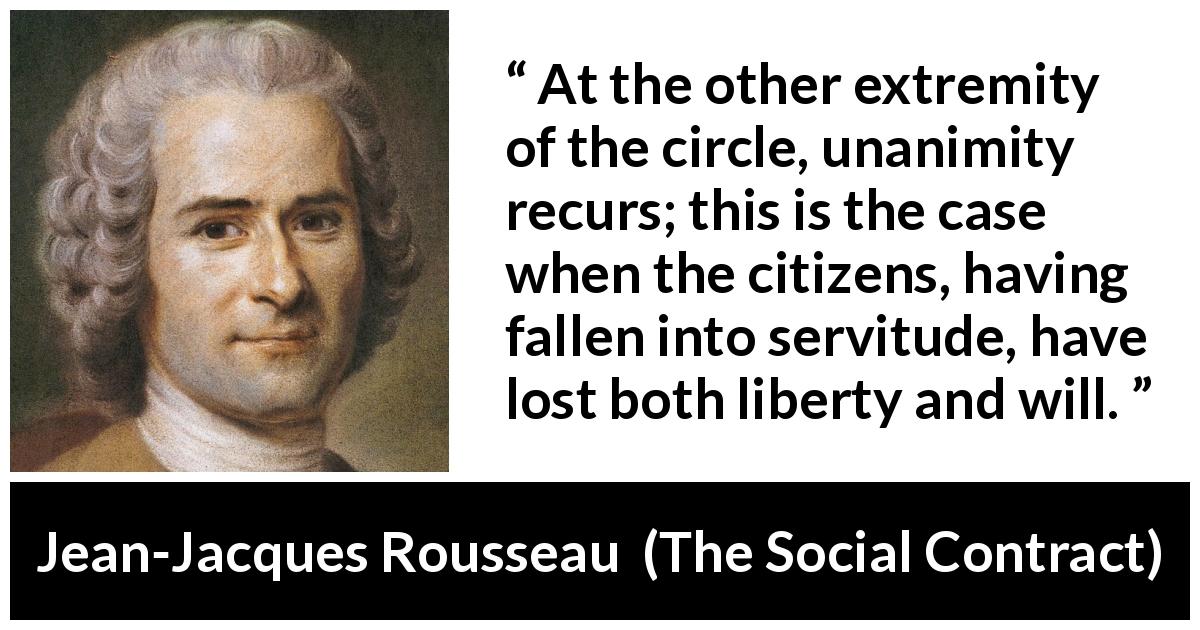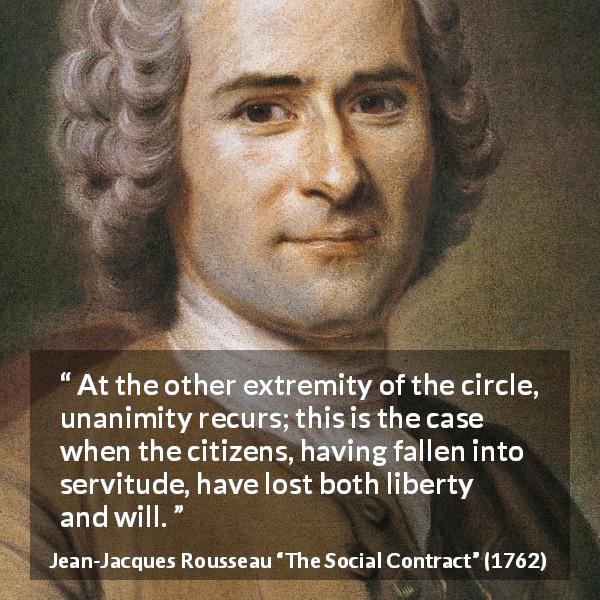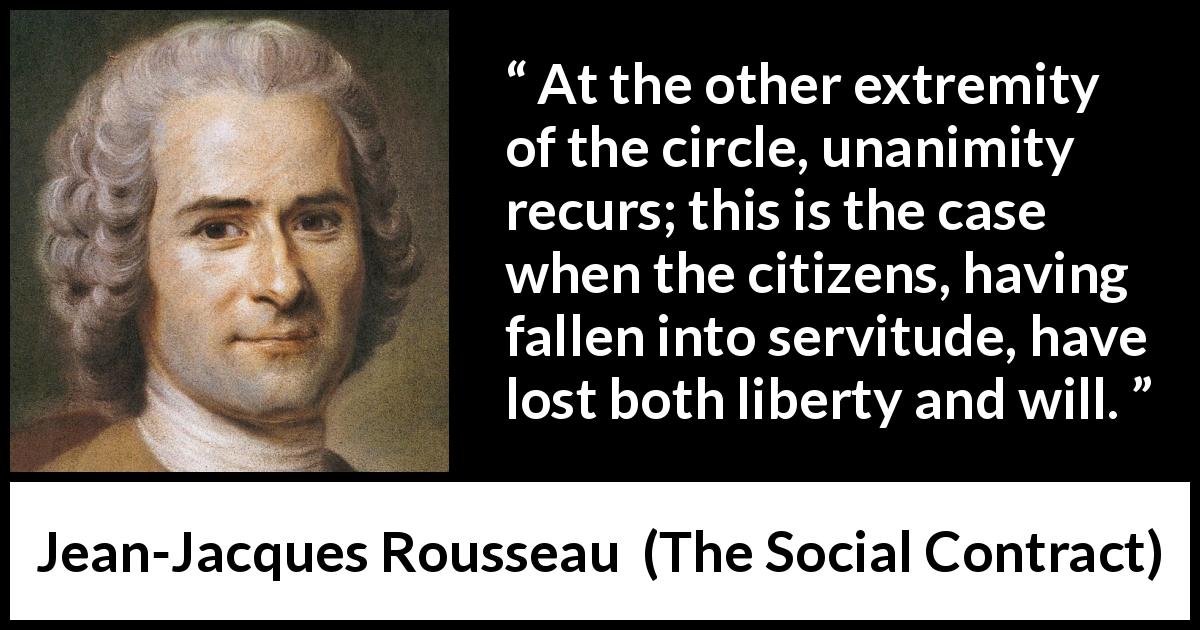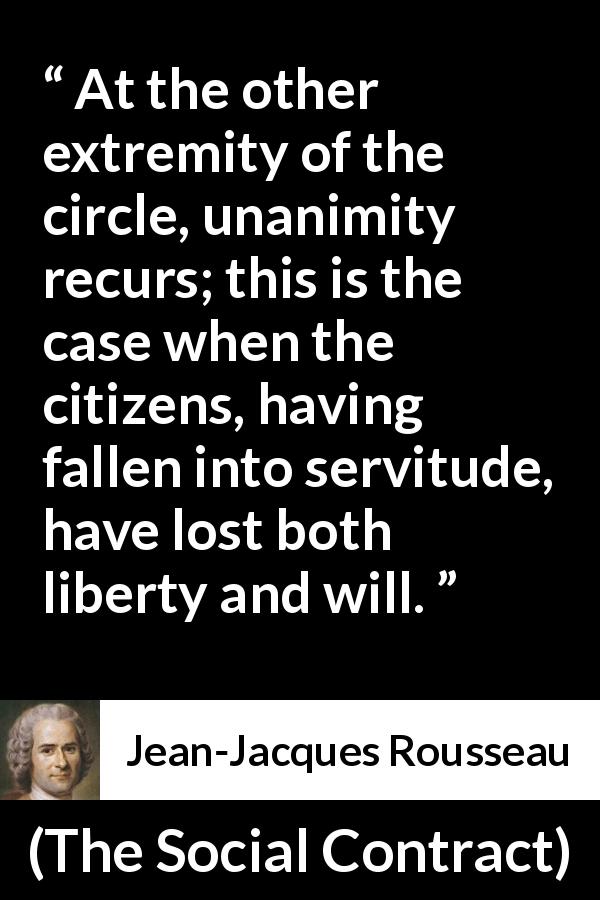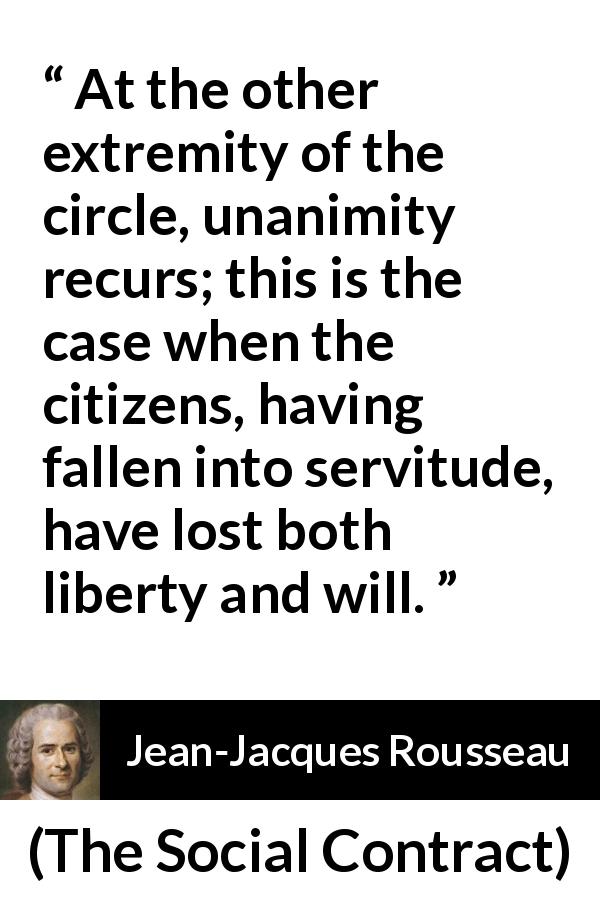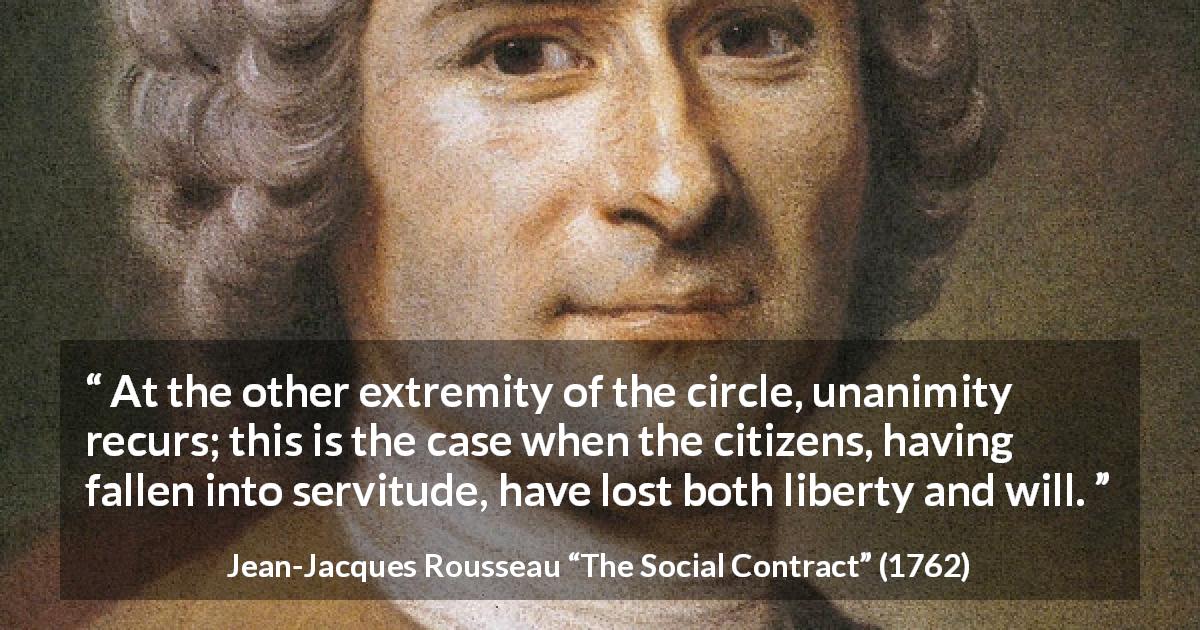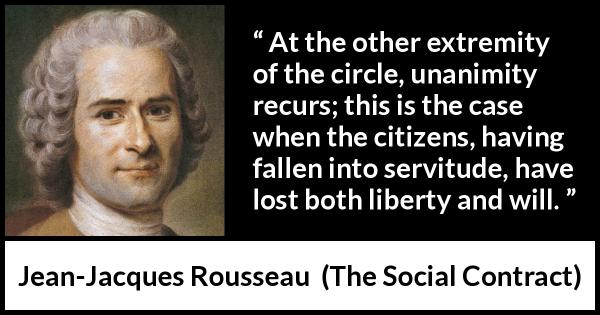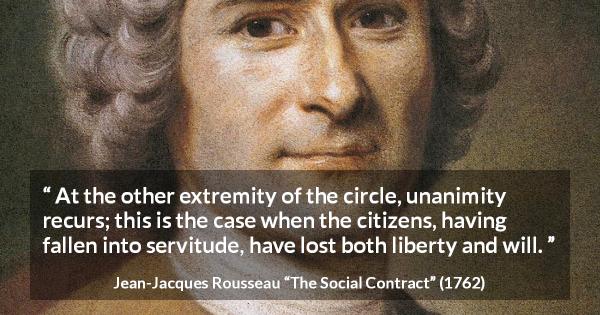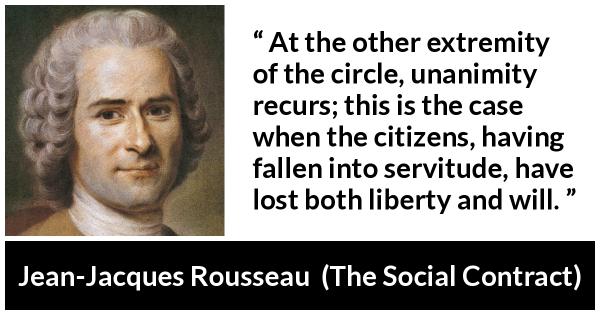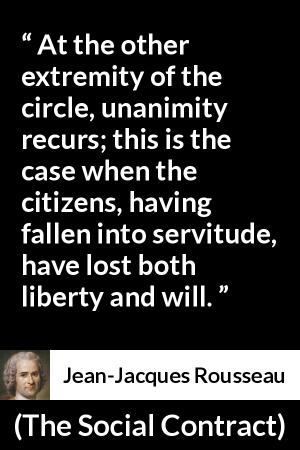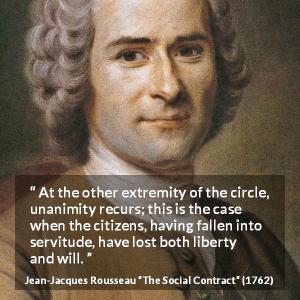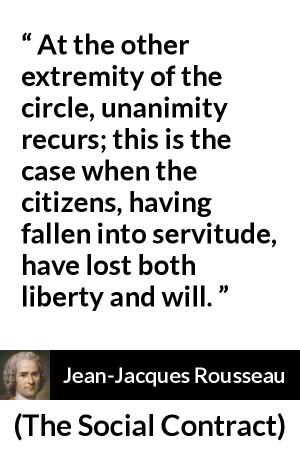“ At the other extremity of the circle, unanimity recurs; this is the case when the citizens, having fallen into servitude, have lost both liberty and will. ”
Jean-Jacques Rousseau, The Social Contract (1762). copy citation
| Author | Jean-Jacques Rousseau |
|---|---|
| Source | The Social Contract |
| Topic | freedom slavery will |
| Date | 1762 |
| Language | English |
| Reference | Of the Social Contract, or Principles of Political Law, Book IV |
| Note | Translated by George Douglas Howard Cole |
| Weblink | https://en.wikisource.org/wiki/The_Social_Contract/Book_IV |
Context
“Indeed, even in the most stormy times, the plebiscita of the people, when the Senate did not interfere with them, always went through quietly and by large majorities. The citizens having but one interest, the people had but a single will.
At the other extremity of the circle, unanimity recurs; this is the case when the citizens, having fallen into servitude, have lost both liberty and will. Fear and flattery then change votes into acclamation; deliberation ceases, and only worship or malediction is left. Such was the vile manner in which the senate expressed its views under the Emperors. It did so sometimes with absurd precautions.” source
At the other extremity of the circle, unanimity recurs; this is the case when the citizens, having fallen into servitude, have lost both liberty and will. Fear and flattery then change votes into acclamation; deliberation ceases, and only worship or malediction is left. Such was the vile manner in which the senate expressed its views under the Emperors. It did so sometimes with absurd precautions.” source
